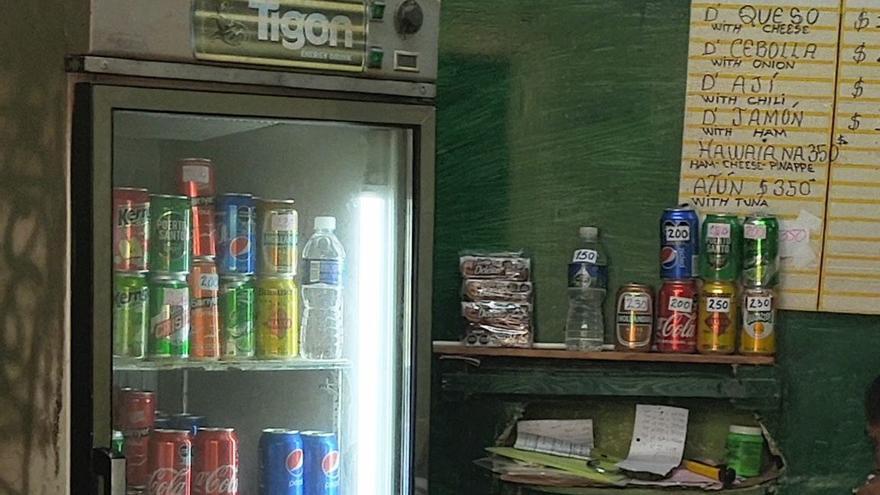
![]() 14ymedio, Juan Diego Rodríguez, Havana, 8 August 2023 — Of all the basic products that are scarce in Cuba, the most dramatic in these days of extreme heat is water. It’s not only that you cannot get a free glass of water in any shop, state or private business, but that the bottled ones have disappeared from state businesses, which nevertheless do sell alcoholic beverages and soft drinks. Bottled water remains, as a last resort, in the private businesses, at impossible prices for most of the population.
14ymedio, Juan Diego Rodríguez, Havana, 8 August 2023 — Of all the basic products that are scarce in Cuba, the most dramatic in these days of extreme heat is water. It’s not only that you cannot get a free glass of water in any shop, state or private business, but that the bottled ones have disappeared from state businesses, which nevertheless do sell alcoholic beverages and soft drinks. Bottled water remains, as a last resort, in the private businesses, at impossible prices for most of the population.
Doris says that until recently in state shops, such as the El Mercurio cafeteria, located on the ground floor of the Lonja de Comercio in Old Havana, she could buy a bottle of water “at a reasonable price” before going for a walk to the port. “Last month they didn’t have any in El Mercurio, and I had to buy it at the Café de Oriente, also state-run, but at 70 pesos.”
This Monday, there wasn’t any water in either of the two places, and she had to walk almost ten blocks, to Obispo Street, sweating through every pore, before finding a store that sold it. “Of course, it was in a private shop and cost 150 pesos,” complained this 30-year-old woman of El Vedado. “That, a small bottle, which is a cup and a half of water. They never go below 100 pesos.” The one and a half liters usually costs 300.

“How is it possible that with this terrible sun that makes you faint the State doesn’t have water?” asked Doris, indignant, unable to understand how something nationally produced could be missing. It’s true that “everything is in the hands of the private stores at exorbitant prices, and of course no one gives you a glass of water, no one gives you anything. I can only assume that they divert it to the private businesses so that they can resell it.”
The woman is grateful for at least having money and being able to spend it on a bottle of water, “but a poor old woman who walks down the street, thirsty, begging for alms? What water does she drink?” Her questions remain unanswered.
Translated by Regina Anavy
____________
COLLABORATE WITH OUR WORK: The 14ymedio team is committed to practicing serious journalism that reflects Cuba’s reality in all its depth. Thank you for joining us on this long journey. We invite you to continue supporting us by becoming a member of 14ymedio now. Together we can continue transforming journalism in Cuba.
